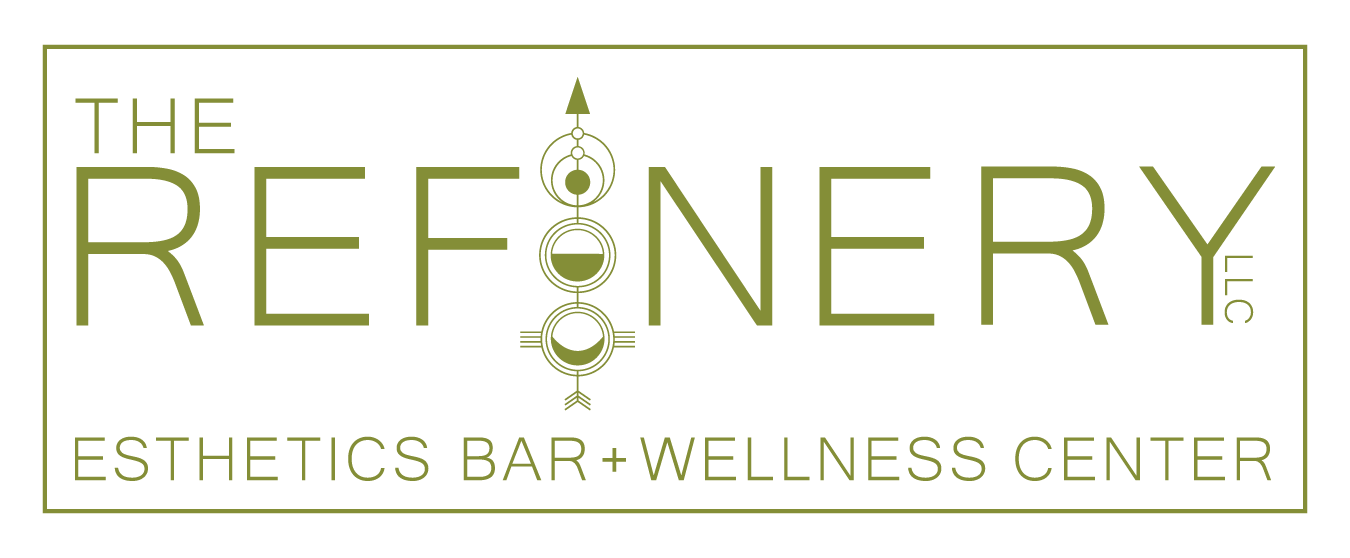Glycation of the skin
The top two skin conditions I work with the most are acneic conditions and maturing skin or anti-aging, if you will. Let’s talk a little bit about how we can work with our maturing skin.
I often get asked the question "how do I prevent wrinkles?"
Wrinkles form when collagen and elastin begin to break down. Think of collagen and elastin in like an extra firm mattress at a mattress store. The more people jump on the mattress and test the mattress out the more broken in or saggy the mattress becomes. This is the metaphor I would like you to keep in mind when we are talking about the aging process. Collagen and elastin break down due to a process called glycation.
This is a great spot to speak about the skin as an organ. Sometimes we get caught up thinking that skin tissue is only what we can see; but we have to remember that the tissue that makes up the skin on our body and our face also exist inside in various forms.
When we are talking about wrinkles of the skin on the face and the body, I am forced to remain within my scope of practice to speak of ways we can heal these areas. I also remind you to realize what is happening on the skin, what we can see, is also happening inside our body; so when we speak of inflammation in skin tissue, there is also underlying inflammation in our digestive tract, our hormones, our joints, etc.
Glycation is a whole body concern we should all be aware of as it impacts acne, aging, internal inflammation, and more.
WHAT IS GLYCATION
Glycation is a process that occurs when glucose (sugar) bonds to protein cells (the structure cells like collagen and elastin) making them heavy, creating sag, , therefore breaking down the collagen and elastin bands and fibers.
This allows for more free radicals (bad guys) to invade skin tissue and wreak havoc. We commonly refer to this as oxidative stress, where there’s less antioxidants (skin saving warriors) and more bad guys.
Unfortunately, facials and professional skin care products ALONE cannot be the only go-to to prevent glycation. It has to start with lifestyle. The fastest way to stop glycation from occurring is to cut back on your sugar intake and increase antioxidants.
WHAT ARE ANTIOXIDANTS
Antioxidants are molecules that fight free radicals in your body. Free radicals create damage and when they accumulate (because a state known as oxidative stress) they damage your DNA and other important structures in your cells. Chronic oxidative stress can increase your risk of chronic disease such as heart disease, diabetes, and cancer. So in order to prevent oxidative stress, we have to prevent glycation.
The only way to fight glycation is to increase the amount of antioxidants in and on your body and to stop the glycation from occurring in the first place. We can do this through our diet, skin care product, exercise, and supplements.
ANTIOXIDANTS THROUGH DIET AND LIFESTYLE
Let's get the bad news over first! Avoid all forms of alcohol, bakery, soda, candy…
Look at your ingredient labels on all products; including salad dressings, yogurt, and anything that comes from the middle aisles of a grocery store. The focus here is to decrease refined sugar; however, you want to keep your natural whole fruits due to the antioxidant benefits.
Dark chocolate, the darker the better, is rich in minerals and antioxidants which makes most of us happy! Pecans, blueberries, strawberries, artichokes, goji berries, raspberries, kale, red cabbage, beans, beets, and spinach are some of the top antioxidant foods you can incorporate into your daily living.
Having your plate full of colorful fruits and vegetables with a side of lean protein such as chicken, turkey, or fish with minimal carbohydrates is your best chance or a great first step towards introducing more antioxidants instead of free radicals.
ANTIOXIDANTS THROUGH EXERCISE
It is also important to note that in-vivo antioxidant levels can be improved not only through intake of exogenous antioxidants but also by exercise training. Many animal studies have reported that endurance exercise training increases antioxidant enzyme levels in skeletal muscle at rest. The more antioxidants the less oxidative stress… The less oxidative stress the less glycation.
In summary in order to reduce free radicals, glycation, and oxidative stress eat foods that are rich in antioxidants boosting your vitamins A, C, & E... Avoid high glycemic foods or foods that are rich in refined carbohydrates and sugars, limit processed meat such as sausage, bacon, and salami. Limit red meat due to its vulnerability to oxidation, don’t reuse cooking fats and oils, limit alcohol, consider fruit for dessert, grab nuts when needing a snack or sip on a warm cup of ginger turmeric tea before you go to bed.
(see us at the studio for Fit Happens, Tuesdays 8:30-9:30am or join in for a yoga class)
THEN WE HAVE SKINCARE
Applying serums rich in vitamin C, E, and A are sure fire ways to work your way from outside, in. Staying consistent with your morning and nighttime routine (double cleanse, tone, serums, moisturizer) and wearing and reapplying sun protection are key ways to prevent the environmental stressors from adding free radicals to the mix.
Look for titanium dioxide and zinc oxide as main ingredients in sunscreen to prevent the heating of the skin from the inside out (heat increases glycation as well). You can try Bioelements Vc10 vitamin C serum, Sleepwear and V-neck smoothing cream.....or maybe you'd rather roll with Code of Harmony Pomplio or Virgin Skin Serum!
In short, taking care of our skin is a lifestyle and a commitment.
You have to show up to do the work and avoid, when possible, substances that send you off your path.
Stick to a skin care routine.
Fuel your body and mind with rich, whole foods.
Exercise regularly.
Supplement daily.
Love and kindness always.
xo
Brooke
